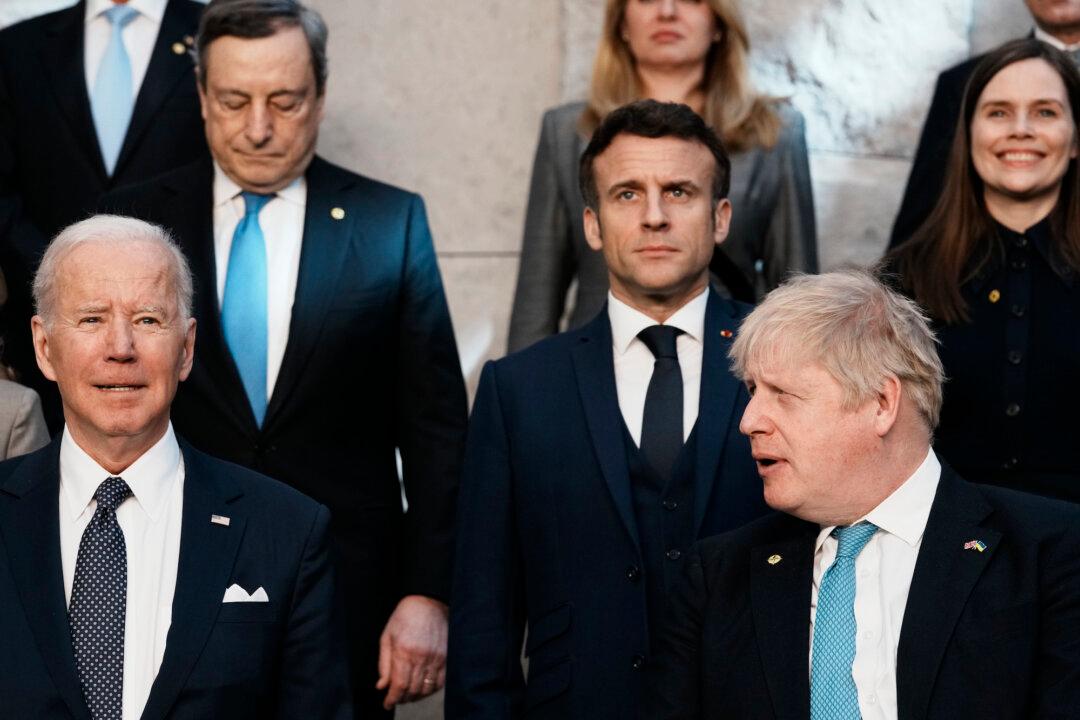President Joe Biden and Western allies convened in Brussels, Belgium on Thursday for the first of three summits meant to address what NATO Secretary General Jens Stoltenberg described as “the most serious security crisis in a generation.”
The Western allies met at NATO headquarters in Brussels, where they posed for a group photo before heading inside for closed-door talks expected to last several hours.





